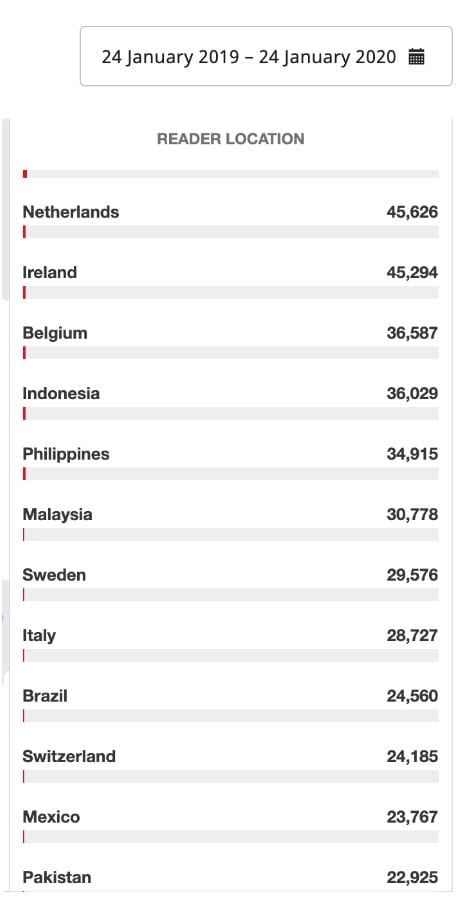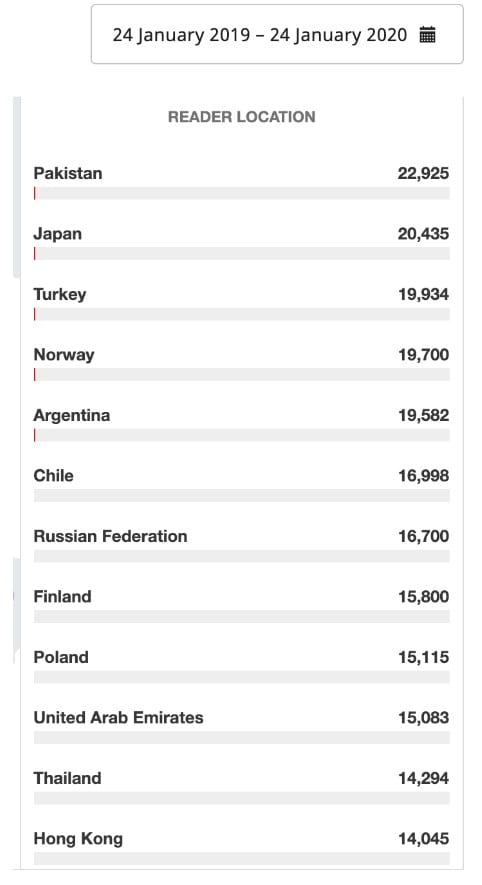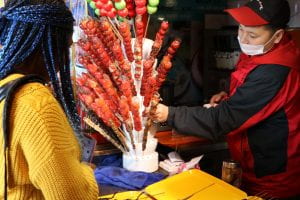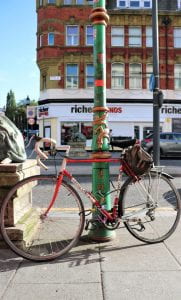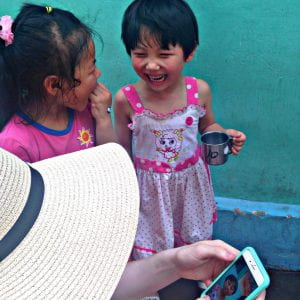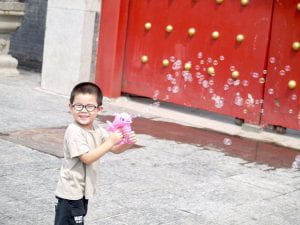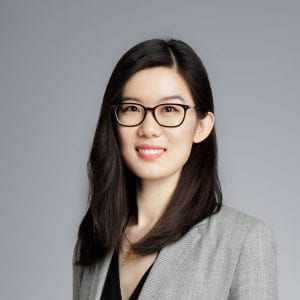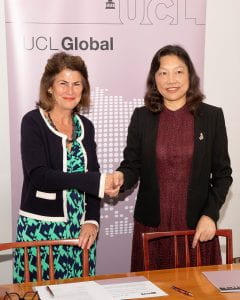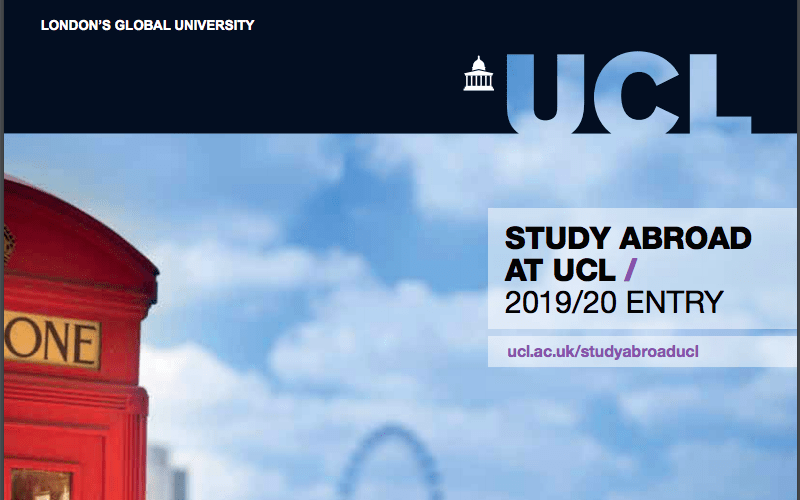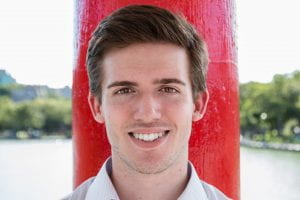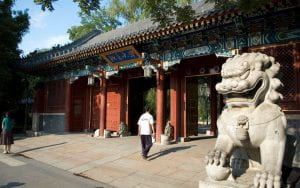Youth Engagement at 146th Executive Board Meeting of the World Health Organization
By Guest Blogger, on 13 March 2020
By Brian Wong, PhD student, UCL Institute of Cardiovascular Science
Over the past few years, the presence of students and members of youth-led organisations in global health spaces has led to the meaningful and sustainable engagement of young people in global agendas. One such youth-led organisation is the International Federation of Medical Students Associations (IFMSA), which is one of the world’s oldest and largest student-run organisations.
IFMSA represents, connects and engages with an inspiring network of 1.3 million medical students from 136 national member organisations (NMOs) in 126 countries around the globe. IFMSA was granted consultative status by the United Nations Economic and Social Council (ECOSOC), meaning it is able to send members to UN meetings to participate in the UN’s work and that of its specialised agencies.
 I currently sit on the board of trustees for Students for Global Health (SfGH), a global health charity and the UK NMO of IFMSA. I was fortunate to have been selected to attend the 146th Executive Board meeting of the World Health Organization (WHO) in Geneva from 3-8 February 2020 as a delegate of IFMSA. Our delegation of 11 represented different regions and a range of experience levels. Besides medical students, the delegation also included global health advocates with backgrounds in public health, dentistry and veterinary medicine.
I currently sit on the board of trustees for Students for Global Health (SfGH), a global health charity and the UK NMO of IFMSA. I was fortunate to have been selected to attend the 146th Executive Board meeting of the World Health Organization (WHO) in Geneva from 3-8 February 2020 as a delegate of IFMSA. Our delegation of 11 represented different regions and a range of experience levels. Besides medical students, the delegation also included global health advocates with backgrounds in public health, dentistry and veterinary medicine.
[Find out more about getting involved with SfGH UCL, a local branch of Students for Global Health UK]
The WHO Executive Board (EB), which comprises 34 technical experts from member states, advises and generally facilitates the decisions and policies of the World Health Assembly (WHA). The EB has high-level meetings at least twice a year, with the main meeting in January and a shorter second meeting after the WHA in May, during which time the agenda for the forthcoming WHA is agreed upon and resolutions are adopted. Also present at the EB meeting are other member states, representatives of UN agencies and non-state actors (NSAs).
IFMSA is considered a NSA and is one of only two youth organisations in official relations with WHO; therefore, we can attend high-level meetings such as the EB meeting to advocate and deliver statements on relevant agenda points. At this year’s EB meeting in January, there were several hundred delegates in attendance, including WHO technical experts/department directors, representatives of the 34 EB members, non-EB member state representatives (including the UK and Canada this year) and NSA representatives (the category IFMSA falls under).
The IFMSA delegation delivered statements at the EB meeting and advocated for meaningful youth participation in global health. We split our advocacy efforts into four working groups:
- Universal Health Coverage (UHC)
- Communicable Diseases, including public health emergencies of international concern (PHEIC) – this took up the bulk of the meeting given the current coronavirus situation
- Non-Communicable Diseases (NCDs)
- Global Health & Governance Issues
As part of the NCDs Advocacy Working Group, I wrote and advocated for policy statements that I delivered to the international community on the following agenda topics:
- EB146/7: Political declaration of the third high-level meeting of the United Nations General Assembly on the prevention and control of non-communicable diseases
- EB146/23: Development of a proposal for a Decade of Healthy Ageing 2020–2030
- EB146/24: Comprehensive implementation plan on maternal, infant and young child nutrition: biennial report
In total, our delegation delivered nine statements on the topics of primary health care, UHC, the prevention and control of NCDs, the global vaccine action plan, ending tuberculosis, health emergencies, the Decade of Healthy Ageing, the global strategy on digital health and the involvement of non-state actors at WHO.
IFMSA also actively contributed to two side events. The first was the launch of the WHO Global Health Workforce Network (GHWN) Youth Hub report on youth and decent work in the health and social care sector. The second was the NGO consultation of the Alliance for Health Promotion. In addition, we had the opportunity to attend technical briefings, one on the current coronavirus outbreak and the other on electronic nicotine delivery/vaping systems.
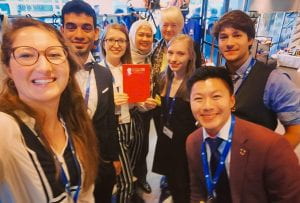 We also had several meetings with current youth delegates and Diah Saminarsih (WHO’s Senior Adviser on Youth and Gender to the Director-General) during which we discussed strategies to increase meaningful and sustainable youth participation in global health, as well as to further support youth delegate programs. Furthermore, we conducted consultations with member state representatives to discuss youth engagement strategies in their respective countries.
We also had several meetings with current youth delegates and Diah Saminarsih (WHO’s Senior Adviser on Youth and Gender to the Director-General) during which we discussed strategies to increase meaningful and sustainable youth participation in global health, as well as to further support youth delegate programs. Furthermore, we conducted consultations with member state representatives to discuss youth engagement strategies in their respective countries.
Youth organisations like IFMSA continue their advocacy efforts tirelessly throughout the year. Although the 146th Executive Board meeting is now over, work towards a successful 73rd World Health Assembly has only just begun. We plan to continue our work with WHO and the youth delegates over the coming months to strengthen meaningful and diverse youth engagement in global health.
For the latest news about UCL’s international activity, partnerships and opportunities, subscribe to our bimonthly Global Update newsletter.
 Close
Close





